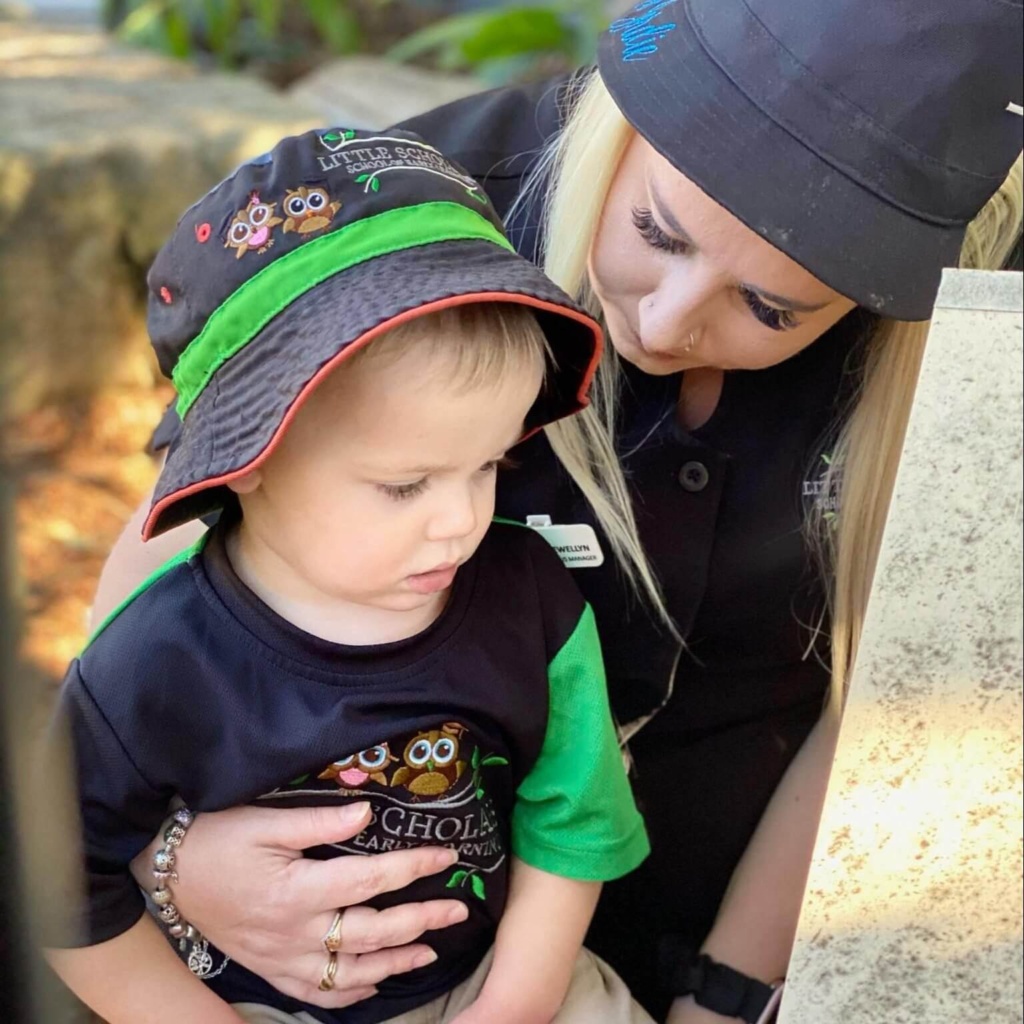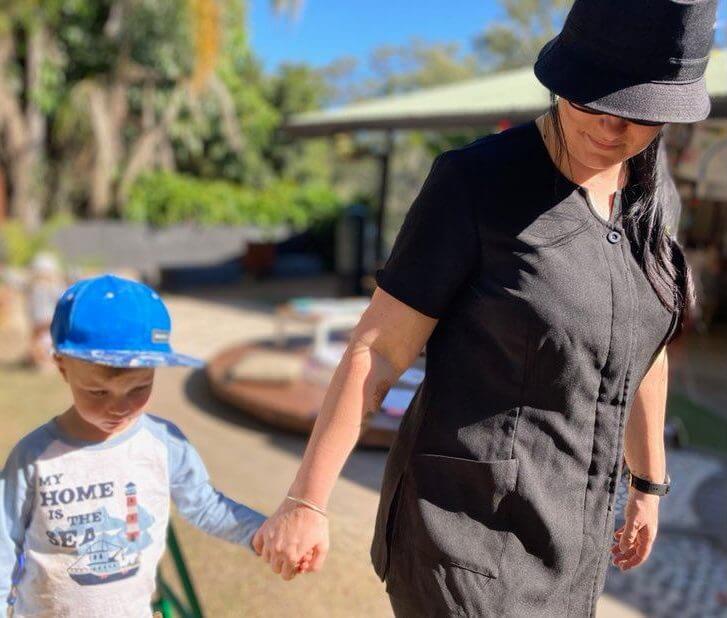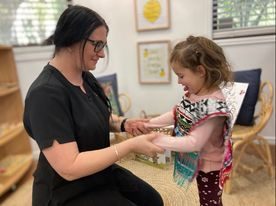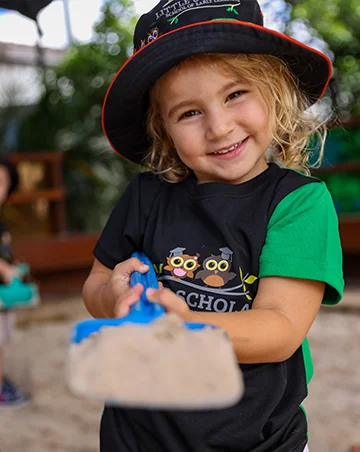Life is full of big changes, everyone goes through a few in their lifetime, and some of these things are in our control and some aren’t. Knowing changes are coming, whether they’re positive or negative, isn’t always easy. As change happens, your routines are disrupted and suddenly you have to adapt as you are pushed further and further out of your comfort zone. For the little people in your life, generally, when a big change happens in their home, they have little control over what’s happening, may not even understand what or why something is happening, and it can be hard.
Some examples of these life changes affecting small children could be a new sibling, parents separating, losing a family member, moving to a new house or even a new city or town. While these changes affect everyone in the house, children don’t necessarily have the coping skills yet to deal with them. Children who are new to major life changes need extra support in addressing their feelings, understanding and adjusting to change, and learning new strategies and skills along the way. As their parent, even if you’re also dealing with these changes yourself, you have to find time for your children to support them through this change. They may be small, but their feelings matter just as much as everyone else’s.
Time to prepare
If you can, give them time to prepare. Is Nana sick? Have a conversation with your children about what this could mean: her not being able to see them while she recovers. Maybe it means time in hospital and she may look different, or maybe it’ll be harder to touch her or talk to her, and maybe it means she may not survive. You may need to prepare yourself first about how you’ll have these kinds of hard conversations with them.
Is a new baby coming? Assure them this does not mean you will love them any less. Let them know that while a new baby may need more attention in the beginning, you’re always there for them and you will still have special time together. Many parents swear by having a special toy basket set up for when the baby needs to be fed, and putting these random, loose parts in the basket that can change regularly to keep them interested.
At our centres, we can arrange activities that help children understand the changes that may be happening at home.
For example, when it comes to a new sibling’s arrival:
“We have had a few new sibling arrivals, and with that we will set up some baby care stations with wraps, bottles, rattles, nappies clothes, etc,” says Skye, an educator at our Yatala campus. “We even do a little bath sensory activity, we read books on the arrival of babies at home and also find some songs about families,”
If you’re at a loss on where to start preparing, book stores and libraries these days have incredible selections of books for children to help them understand in age-appropriate ways big life changes that can affect them. Whatever the scenario, by giving them time to process and accept the change that’s coming, things may be easier when they actually do come. They may not offer up what’s happening in those busy minds and you may need to check in and ask them how they’re feeling or what they think. “I told you not long ago that Mummy and Daddy have to sell the house because we have to move to another city. What are some of the things that come to mind when you think about not living here anymore?”

Listen to concerns
Take time to listen to their concerns. Be ready to answer questions (and for most children, there will be more and more questions!) and know these questions may come up at what seems to be random times, but that goes to show they internalise change and are trying to process it maybe even more than you think! Say something like, “Moving to a new place can feel sad and scary. It’s okay to feel that way. Let’s take some deep breaths. We can get through it together.”
You may need to help them identify what their feelings are and explain what they mean: emotions such as feeling anxious, sad, scared, excited, and nervous are normal feelings and won’t last forever, and also let them know that these are feelings grown-ups feel too.
Keep routines the same (as much as possible)
Consistency and stability are just as important now as ever before. Bedtimes and mealtimes should remain consistent and are great times to connect as a family, even if the family dynamic is changing. The structure feels safe for children, so provide as much of it as possible to restore a sense of safety. Avoid a lot of big changes at once. Even if there’s a new baby coming, this may not be the time to move your child from cot to big bed if they’re already unsure of their feelings about not being your baby anymore. If Mummy and Daddy are going to live apart, help them set up their second bedroom similarly to the one they’ve known, and try to keep those routines the same, no matter what home they’re spending time in.
“When it comes to a family break, we always talk with parents encouraging them to keep the same routine at both houses, like toileting, comforters, for example,” Skye says.
Maintain connection

Another thing that should remain consistent is your child’s relationship with you. Make sure your child knows that no matter what else changes, you aren’t going anywhere, and neither is the bond you have with your child. You are always there for them, even if it’s by phone when you can’t be beside them.
Set aside even 10 minutes each day to give your child your undivided attention. Make eye contact, put the phone away, and be playful and affectionate. This will be as good for you as it is your children. If your thing together is going for a walk together, keep doing it. Being cuddled up and reading books together is a wonderful way to maintain your bond. Do an activity together that your child enjoys, whether it’s video games or kicking a ball around, playing dolls or colouring together, you may be surprised with what they’ll remember long into the future about what their time with you meant. Try to remember that a little extra attention and parent-child time reassures your child that your love will stay consistent, making it much easier to cope with changes in other aspects of life.
Tell your Little Scholars educators
Our relationships with our families are so important. We can and would like to help! Talk to your educators or campus manager about what’s going on at home. Your educator may have noticed changes in your child’s behaviour or emotions already, which has given them the heads-up something is different.
“How I notice when children are going through tough times or even have experienced a traumatic event is when they start ‘acting out,’” says Holly, an educator at our Stapylton campus. “Difficulties eating and sleeping than their usual, acting clingy more than usual, more tantrums, losing interest in activities they once enjoyed, they stop playing with their friends and aren’t socially interacting, drawings that are concerning about what is happening in their lives, regression with toileting and even going back to thumb sucking etc.”
By letting educators know what’s going on at home, they can help by ensuring your child has the attention he or she needs especially at this time, or they can help facilitate activities or learning exercises to support feelings your child may be experiencing.
“You definitely need to have built a strong and positive relationship with families in your centre, to ensure you can effectively work together,” Holly says. “Document children’s change of behaviour if you’re concerned and communicate with families about this. It also helps to provide strategies that you will implement at the centre as well as helping families with strategies for home.”
“We always give lots of extra cuddles and when we notice they are having a tough day, and encourage them to do some relaxing activities like laying on the cushions reading, playdough, sensory bottles, calming toys like fidget spinners, poppets, mini lava lamps, just things that give them some space and also some one-on-one time,” Skye says.
It’s our job to help ensure your child is spending their time with us in a warm, welcoming, supportive and caring environment in which she or he can grow socially, cognitively, emotionally, and physically, and we’re here to support your entire family. We have an open-door policy, and you’re very welcome to call or come in to talk as much as you need.



